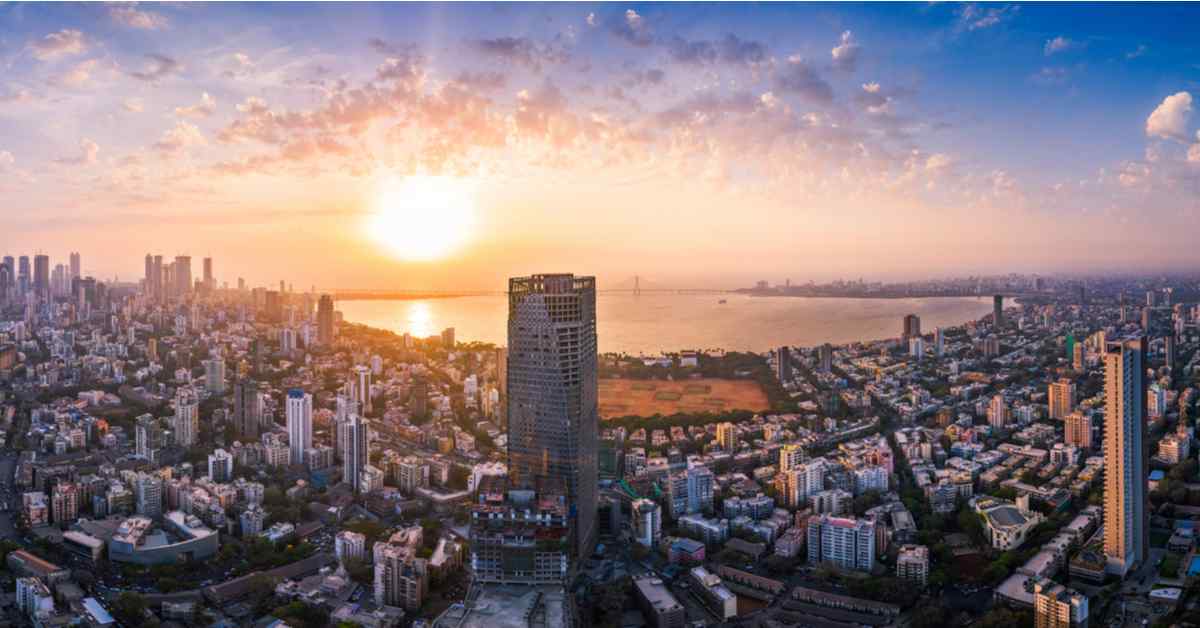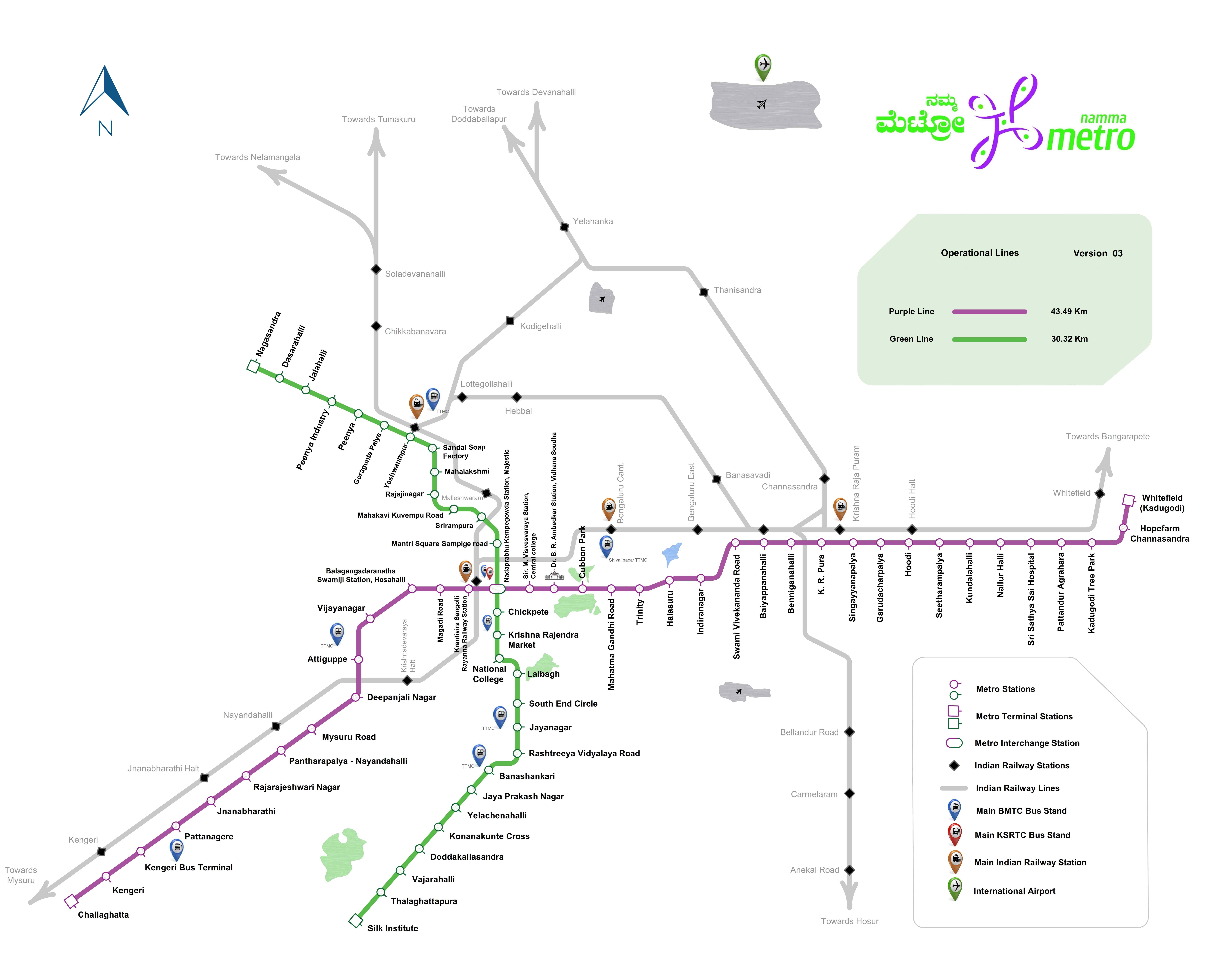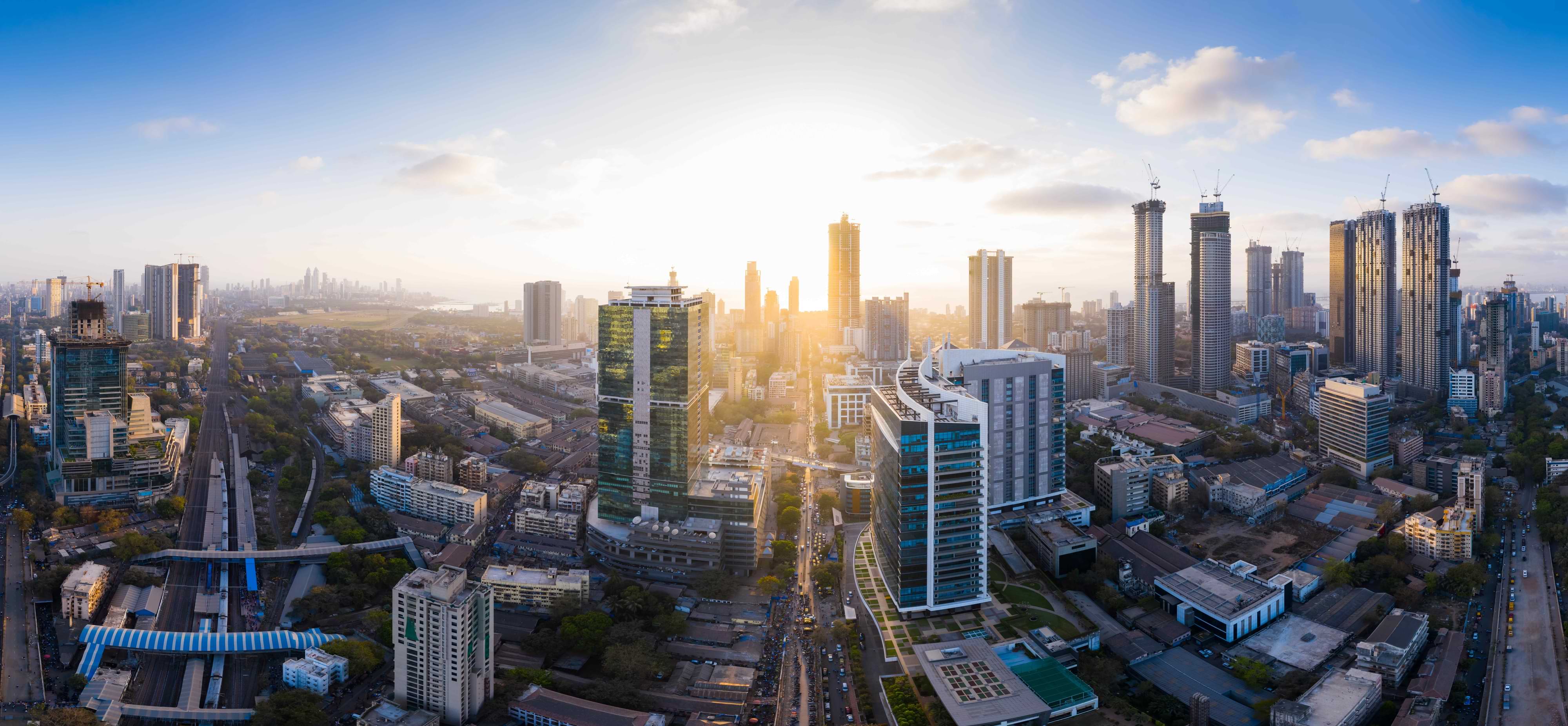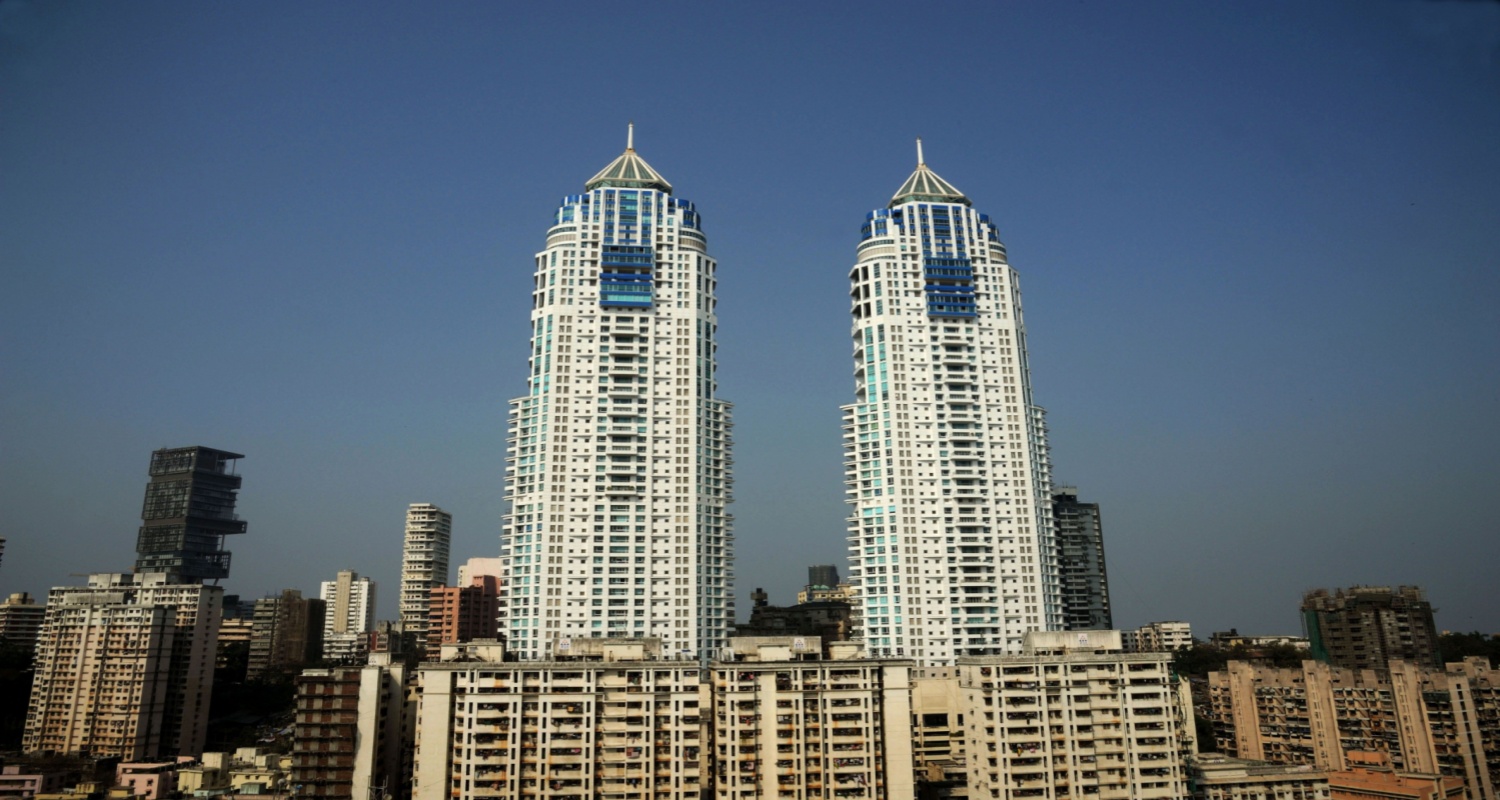Table of Contents
Quality Service Guarantee Or Painting Free

Get a rental agreement with doorstep delivery

Find the BEST deals and get unbelievable DISCOUNTS directly from builders!

5-Star rated painters, premium paints and services at the BEST PRICES!
Loved what you read? Share it with others!


Submit the Form to Unlock the Best Deals Today
Help us assist you better
Check Your Eligibility Instantly

Experience The NoBrokerHood Difference!
Set up a demo for the entire community
Section 80GG of the Income Tax Act: Meaning, Eligible Amount and Process 2024
Table of Contents
According to statistics, around 28% of India contributes to the rental housing market. Some of them receive the expenses incurred as an additional part of their salary while others do not.
Paying the rent out of your own pocket can be quite tough when there is no HRA allotted. In such cases, a taxpayer looks for a reprieve from the hefty taxes. Section 80GG is that reprieve. However, there are a lot of conditions applied and quite a bit of mathematics involved in the actual process. To grasp it all might be a bit confusing unless you are a student of law. This article will give you an insight into section 80GG of the Income Tax Act, 1961. Keep on reading to know more about it.
When you reside on rented property and do not receive any HRA, Section 80GG of the Income Tax Act, 1961 allows a specified amount of tax deduction given that certain conditions are fulfilled. HRA stands for House Rent Allowance and is paid by the employer to provide the employee with the expenses of rented accommodation. However, some self-employed or salaried people do not get HRA as a part of their income and are eligible to claim benefits under Section 80gg of the Income Tax Act, 1961. To be eligible for tax exemption under section 80gg, the employee, his/her spouse, minor child, or any other member of the Hindu Undivided Family (HUF) must not own any residential property.
Quality Service Guarantee Or Painting Free

Get a rental agreement with doorstep delivery

Find the BEST deals and get unbelievable DISCOUNTS directly from builders!

5-Star rated painters, premium paints and services at the BEST PRICES!
What is Section 80GG of the Income Tax Act?
Section 80GG is a provision under Chapter VI-A of the Income Tax Act, 1961. If you are paying rent out of your own pocket and do not receive HRA as a part of your salary package, section 80gg allows a certain amount of tax deduction on the yearly returns filed. It is for people who are certified salary workers or self-employed under the eyes of the government. The tax deduction can be claimed by submitting form 10BA of the income tax act.
However, section 80GG is applicable only when the person claiming tax deduction is an individual or a part of HUF (Hindu Undivided Family) that does not own any residential property. It is not applicable to business institutions of any kind. The maximum amount of tax reprieve is Rs. 60,000 per year.

80GG deduction: If HRA is not part of your salary package
Even if HRA (home rent allowance) is not included in your compensation package, you can claim income tax deductions for the rent you pay. Under sec 80gg of the Income Tax Act and Internal Revenue Code, you can show the rent pay deduction each month. If HRA is included in one's salary package, a tax benefit under Section 10 can be claimed (13A). You can also ask your employee for detailed information on house rent deduction in the income tax section.
How to Claim a Tax Deduction if HRA is part of your Salary Package?
House Rent Allowance is a part of your salary paid by the employer and is not entirely taxable. If you live on rented premises and receive HRA, Section 10 (13A) of the Income-tax Act, 1961 permits a certain amount of tax reprieve from the total income itself. However, self-employed people are not eligible for this tax deduction. Unlike Section 80GG's upper limit of Rs. 60,000, there is no fixed amount of maximum tax deduction in this case.
In case the employee pays rent to his/her parents, the tax deduction is permissible as long as the amount paid is a part of the parent's annual income and is shown under yearly tax returns. However, a married person cannot pay rent to his/her partner.
Yearly tax exempted under Section 10 (13A) of the Income-tax Act, 1961 is the minimum amount of the following values:
a. Actual House Rent Allowance received by the employee as part of the salary package.
b. 50% of the salary if the employee resides in a metro city. 40% for the non-metro cities.
c. Excess of rent paid yearly over 10% of the yearly salary.
HRA tax deductions can be availed when the employee submits the duly signed and stamped rent receipts, or the annual rent agreement formed with the landlord. Along with that, extra information like the house owner's name, address and the period of stay must be mentioned.
Eligible Amount of Deduction Under 80GG
The lowest of these will be used to calculate the 80gg deduction for this section-
- ₹5,000 per month
- Long-term capital gains, short-term capital gains under section 111A, income under section 115A or 115D, and deductions under 80C to 80U make up 25% of total income. In addition, income is before the deduction under 80GG Income Tax).
- 10% of income less actual rent
80gg calculation of Tax
Listed below is an example of how deductions under 80gg income tax work -
Ramesh earns 5 lakhs per year (after all deductions) and lives in rented housing for which he receives no housing rent assistance. Ramesh pays a rent of Rs 1.5 lakhs per year. The deduction in this scenario would be the least of the following:
- Condition 1: A monthly rental cap of Rs 5000, or Rs 60,000 annually.
- Condition 2: Rent paid (1.5 lakhs minus 50,000 (10% of annual income) Equals 1 lakh.
- Condition 3: 25% of total annual income equals ₹1.25 lakh.
Ramesh would only be eligible for assistance under Condition 1 in the scenario above because it is the smallest amount.

What Conditions do you have to Fulfil to Claim a Rebate Under Section 80GG?
Following conditions must be fulfilled to claim a rebate under Section 80GG
- The individual claiming tax deduction must be a salaried employee or a self-employed person under the eyes of the law.
- House Rent Allowance (HRA) must not be a part of the Cost to Company (CTC).
- Business organizations cannot claim tax exemption for their rental expenditure. The assessee must be an individual or a part of the Hindu Undivided Family (HUF).
- If the annual rent expenditure is more than Rs. 1 Lakh, the assessee must submit the PAN card of the landlord of the residential property in question.
- The tax deduction can be claimed regardless of the state of the property i.e., for an unfurnished, semi-furnished or fully furnished house.
- The assessed must submit the form 10BA to the required authorities claiming that there are no benefits claimed from a self-occupied property on a house in the same or any other area.
- If the employee has experienced any change in his/her job or salary package over the past year and has claimed HRA for any given time interval in the year of assessment, tax deduction under Section 80GG will not be applicable.
Make sure all these conditions are fulfilled before you submit the form 10BA to avoid a visit from the officials of the Income Tax Department.
How to Calculate Tax Deduction Under Section 80GG?
Tax deductions under Section 80GG of the Income Tax Act, 1961 are based on Tax Rule 2A.
a. Rs. 5000 per month or Rs. 60,000 per year.
b. 25% of the adjusted gross total income.
c. 10% of total income deducted from the actual rent paid.
[ Adjusted total income = Gross total income - Deduction's u/s 80C to 80U (except section 80GG) - Short term capital gains under section 111A - Long term capital gains - Income covered within the sections 115A, 115AB, 115AC, 115AD and 115D.]
After calculating the above mentioned 3 different figures, one with the least value is the final amount of tax deducted.
For example - If person A earns Rs. 5 Lakhs per annum as the adjusted income and rents a house for Rs. 2 Lakhs. A does not receive any House Rent Allowance. In this case, the amount of tax exempted would be least of -
a. Fixed amount of Rs. 60,000 per annum
b. 25% of the adjusted annual income = Rs. 1.25 Lakh.
c. Rent paid - 10% of income = Rs. 1.5 Lakh.
Here the least amount is in accordance with the condition a i.e., Rs. 60,000.

What Information do You need to Fill in to Claim HRA?
In the form 10BA, the information needed to be filled by the assessee to claim tax deduction under the section 80GG is -
- Assessee's name and PAN.
- Address of the rental property where the taxpayer is residing with the postal code.
- Amount of rent paid as per agreement and the mode of payment (cash, bank deposit etc.).
- Duration of residency in months
- Name and address of the house owner.
- PAN of the house owner if the annual rent paid is more than Rs. 1 Lakh.
- A declaration that the assessee or his/her spouse do not own any residential property under their name or minor child's name or any other member of HUF's name.
Form 10BA can be found in the tax offices, the HR department of any reputed institution or online.

Exceptions under Section 80GG
There are a few exceptions you should know about when it comes to Section 80GG. These are as follows:
- You are not allowed to claim a house rent deduction in case the house you own is where a business is operated or where you are employed
- You are not allowed to claim any house rent deduction in case you are claiming the benefit for a self-occupied property located or rented out in another location than you are living in
In case of HRA is excluded from your salary package
You are allowed to claim any tax deductions against your home rent, even if HRA or House Rent Allowance is not included within your salary package. You can, however, go for claim tax deductions against the monthly rent you pay under Section 80 GG of the Income Tax Act. In case HRA is included within your salary package, you are allowed to go for a tax benefit claim under Section 10 (13A) of the Income Tax Act. Note that the HRA exemption under section 10 is eligible for 50% of your salary in case you live in an Indian metro city.
Why is the Deduction Limit Under Section 80GG Low?
The maximum amount of tax deduction possible under section 80GG is Rs. 60,000 per annum while there is no such upper limit for Section 10 (13A). Seems a bit unfair, doesn’t it? Housing rent is exponentially increasing throughout the country. For most people tax deducted is peanuts compared to the actual rent paid considering that the average rent in Tier-II and Tier-III cities is now as high as Rs. 15,000. However, there is a reason behind the maximum tax exemption under Section 80GG deduction is limited to Rs. 60,000. To change this upper limit, there needs to be an amendment in the tax law unlike Section 10(13A) where such changes could be made by passing notifications.
How to Maximise Benefit Under Section 80GG?
In case the assessee is living with his/her parents, a rental agreement could be signed between the two for a fixed amount. This enables the assessee to file for tax deduction under section 80GG. However, this rent paid must be shown in the annual income of parents and is taxable according to rules.

Prices of property are skyrocketing daily, and it is hard for working-class people to purchase their own homes. Around 28% of Indian citizens live in rented properties and spend a good chunk of their earnings on residential rent. Especially in 2021 when some people are still working from home and some find themselves jobless due to the coronavirus outbreak. In such scenarios, paying the rent can turn out to be a nightmare if you are self-employed or do not get any living accommodations. To overcome this major issue, most the reputed organizations have started paying their employees with the House Rent Allowance (HRA) which is a part of Cost to Company (CTC). However, some salaried and self-employed workers still pay the rent out of their pocket. To provide them with some tax relief, The Income Tax Act, 1961 has specified a Section 80GG. Section 80GG states that the assessee can be allowed a maximum of Rs. 60,000 tax exemption if he/she is a salaried or self-employed worker who does not receive any HRA and does not live in a residential property owned by self/spouse/minor child or some other member of a Hindu Undivided Family (HUF). The assessee can claim a tax deduction by submitting the form 10BA to the appropriate authorities. To know more about Section 80GG and whether it can benefit you or not, contact NoBroker Legal Services by clicking below. The professionals will help you out by giving you the best possible information so that you save money and don’t face any legal issues.

FAQ's
Ans- Section 80GG of Income Tax Act,1961 is for salaried or self-employed workers who do not receive the House Rent Allowance (HRA) as a part of their income and live on rented premises. If you fulfil all the conditions to be eligible under Section 80GG, you can fill and submit form 10BA.
Ans- No, section 80GG is not applicable if you are receiving any benefits as a property owner.
Ans- The maximum amount of tax deducted under Section 80GG of the Income Tax Act, 1961 is Rs. 60,000.
Ans- Yes, you can claim a tax deduction if you receive House Rent Allowance under section 10(13A) of the Income Tax Act, 1961.
Ans- The upper limit in a tax deduction in Section 80GG can only be changed by the amendment of the tax law Whereas the changes in section 10(13A) can be passed by notifications.
Ans- The tax deduction under section 80GG of The Income Tax Act, 1961 is the least value of the following -
a. Rs. 60,000 per annum
b. 25% of total adjusted salary
c. 10% of the total income deducted from the actual rent paid.
You can even find an 80gg calculator online to make the calculation easier.
Recommended Reading

Affordable Places to Live in Mumbai: Mumbai's Most Budget-Friendly Areas
December 31, 2024
6838+ views

The Cost of Living in Gurgaon (2025) For Students, Couples, Families, And More
December 30, 2024
7983+ views

The Cheapest Places to Live in Bangalore for 2025
December 27, 2024
9430+ views

The Cheapest Places to Live in Delhi for 2025
December 26, 2024
7255+ views

Cost of Living in Bangalore in 2025: A Detailed Breakdown for Singles, Couples, and Families
December 23, 2024
19857+ views
Loved what you read? Share it with others!
Most Viewed Articles

Bangalore Metro Map: Route, Timings, Lines, Facts & Stations Latest News 2025
December 19, 2024
185105+ views

Top 10 Richest Cities in India: With GDP and Ranking 2025
December 17, 2024
123571+ views

The Purple Line Metro Bangalore: Route, Map and Timings
December 17, 2024
72030+ views

Top 20 Posh Areas in Delhi: Most Expensive & Best Residential Areas in Delhi
December 17, 2024
63310+ views

Top 10 India's Tallest Buildings: Height, Number of Floor, Address and Ranking in 2025
December 17, 2024
61952+ views
Recent blogs in
Mumbai Metro: Timings, Routes, Maps, Stations, and Fares – Everything You Need to Know for 2025
January 2, 2025 by Prakhar Sushant
Top 10 Posh Areas in Bangalore
December 31, 2024 by Pooja
Places to Visit Near Hyderabad Within 200 kms
December 31, 2024 by NoBroker.com
The Best Pre-wedding Photo Shoot Locations in Bangalore, Karnataka
December 31, 2024 by Simon Ghosh
Mumbai Metro Line 3: Station List, Fare and More
December 31, 2024 by Prakhar Sushant




Join the conversation!